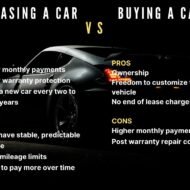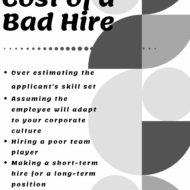Currently Browsing: Decision Making
Posted by Managementguru in Artificial Intelligence, Chat GPT, Decision Making, E Commerce, Marketing
on Jun 16th, 2023 | 0 comments

Artificial Intelligence (AI) and Chat GPT (Generation Pre-trained Transformer) are rapidly gaining traction in industries around the world, including business and marketing. These technologies have the potential to revolutionize customer experiences by enabling businesses to provide personalized, efficient, and engaging services to their customers. In today’s digital age, businesses are constantly looking for new and innovative ways to reach their target audience and stay ahead of the competition. One such innovation that has been gaining momentum in recent years is Artificial Intelligence (AI) and its applications in marketing and communication. Specifically, chatbots powered by AI have revolutionized the way businesses interact with their customers, providing personalized and efficient communication on a large scale. We will explore the scope of AI and Chat GPT in business and marketing, their benefits, and how they are transforming customer experiences. We will also discuss the challenges and ethical considerations surrounding these technologies, giving you a comprehensive understanding of the topic. So, buckle up and get ready to dive into the exciting world of AI and chat GPT in business and marketing. What is Chat GPT? Chat GPT (Generative Pre-trained Transformer) is a revolutionary AI language model that has taken the world by storm. It has the potential to change the landscape of natural language processing by generating human-like responses to natural language inputs. Chat GPT offers many advantages in a variety of applications, from customer service chatbots to virtual assistants. Today, more businesses are realizing the potential of Chat GPT in making their customer service more efficient and effective. We will provide insights on how Chat GPT can help you in your work, the benefits of using it, and how to implement it in your organization to promote workplace productivity and provide great customer service. Scope of AI & Chat GPT in Business and Marketing The scope of AI and chat GPT in business and marketing is vast. With the help of AI-powered chatbots and virtual assistants, businesses can automate their customer interactions, reducing response time and increasing customer satisfaction. Chat GPT can help businesses generate conversational responses that are tailored to individual customers, creating a more personalized experience. Benefits of AI and chat GPT 1️⃣ The benefits of AI and chat GPT in business and marketing are numerous. Firstly, these technologies can help businesses save time and money by automating repetitive tasks. Additionally, they can provide a seamless customer experience, allowing customers to engage with businesses on their preferred messaging platforms. 2️⃣ Another significant benefit of AI and chat GPT is the ability to gather valuable customer insights. Companies can use AI-powered analytics tools to track customer behavior, preferences, and feedback, helping them to improve their services and products continuously. However, there are also several challenges and ethical considerations surrounding the use of AI and chat GPT. For example, there is a risk of miscommunication or misinterpretation of customer queries by chatbots. Furthermore, there is a potential for these technologies to perpetuate biases and discrimination, as they are only as unbiased as the data they are trained on. Some of the key considerations include: 👉🏾 Bias and discrimination: AI and ML algorithms are only as unbiased as the data they are trained on. If the data is biased, the algorithms will also be biased, resulting in discriminatory outcomes. Companies must ensure that their data is representative and unbiased to avoid perpetuating existing biases. 👉🏾 Transparency and accountability: AI and ML decision-making processes can be opaque, making it difficult to understand how decisions are being made. Companies must ensure that their algorithms are transparent and accountable so that customers can understand the rationale behind the decisions made. 👉🏾 Privacy and data security: AI...

Posted by Managementguru in Decision Making, Human Resource, Productivity, Training & Development
on May 7th, 2021 | 0 comments

A company is only as good as the people that work in it, so if you’re a small business owner, then you want to make sure that you’re hiring the best people to work for you. Of course, it’s possible to do all of your recruitment tasks in-house; however, this can not only be a time-consuming task but might also prevent you from accessing the best talent out there. That’s why many companies turn to recruitment agencies for help when bringing on new staff. Here’s how doing so could benefit you and your business. It can save you time Sifting through all those applications and checking people’s CVs can take a surprisingly long time, especially when you consider that inevitably a number of them will not even be worth considering for the position. Instead of wasting countless hours on that and other tasks such as scheduling interviews and notifying unsuccessful candidates, you can hire a recruitment agency to take care of everything for you. That leaves you with more free time to focus on those aspects of running a company that only you can do, put in some deep work, and do the tasks that you enjoy the most. You can benefit from expert knowledge Recruitment is an entire field of its own, and as such, there’s a lot to learn if you want to do it successfully. From understanding where to advertise and the current legislation to salary trends and skill shortages, a recruitment agency will have all the relevant market knowledge required to get you the best candidates. This is especially true if you choose a company that specializes in recruiting for your field – for example, an Industrial Recruitment Agency if you operate in the warehousing and manufacturing sector. They offer a range of services A recruitment agency can truly do a lot for you. They can handle everything from advertising the roles you have available to negotiating salaries with people and verifying candidate information. Temporary jobs can often be filled instantly by someone in their current pool, and they can even administer psychometric tests before you conduct interviews. All of this can also result in cost savings too, reducing the amount you need to spend on advertising, overtime, and training. Speak to an agency to see exactly what services they offer – they might well suggest something you’ve not thought of before! It can improve your chances of attracting better candidates Ultimately the whole point of recruitment is to get the best person for the job, and using a recruitment agency can increase the likelihood of that happening for you. They know where to advertise to attract top-quality candidates and have the networks to approach people who might not be actively looking for a new role but would be open to the opportunity you’re offering. Thus an agency can connect you with talented potential staff who you wouldn’t have access to or draw the attention of on your own. This is particularly useful if you’re searching for someone with niche skills or specific...

Posted by Managementguru in Business Management, Decision Making, Financial Management, Startups
on Jan 20th, 2021 | 0 comments

Maybe you are just starting your business and choosing a new car for it. Perhaps your company is so big that it needs multiple vehicles, requiring a fleet management company for your business. The same question arises – is it better to lease or to buy the cars you need? Both options have their benefits, but there are many things to consider before making a choice. These include tax implications, financial commitment, and also the question of ownership. Let us look at all of these elements that can be deciding factors when choosing between buying or leasing a car for your company’s needs. What is car leasing? Business car leasing is a form of a financial agreement between a business and a finance company where the business owner can essentially rent a vehicle for an extended period. This can be anywhere from one to five years, depending on the contract. When the lease term is complete, the lessee may either purchase the car or return it. Advantages of leasing a company car Lower costs and maintenance When choosing the option to lease, your monthly payments are typically lower than they would be if you were buying a car. For a relatively low initial fee, followed by regular monthly payments, you get all of the benefits of running a brand-new vehicle. This includes the full manufacturer’s warranty cover, which typically lasts for two to five years. Taxes Leasing can be an attractive option because many businesses can claim back part, or all, of the VAT. Exact figures depend on the VAT scheme that your company falls under but as a general rule, companies can claim back 50 percent of the VAT if a car is used for private and business purposes. Also, you don’t have to pay any up-front sales tax because you’re not purchasing the vehicle. Flexibility At the end of the lease, you usually get to choose between purchasing the vehicle outright, refinancing, or simply handing it back. Cons of car leasing Mileage limit When you lease a car, there will be a limit on how many miles you’ll be permitted to drive throughout the lease. If you were to exceed that limit, you would face fees that can be pretty hefty. Driving limitations Since you will have been the one to sign the lease agreement, only you would be permitted to drive that vehicle. While that doesn’t sound so bad, it may complicate business matters if you’re not around to operate the car. Ownership While the lease lasts, you do not own the vehicle. This means you won’t be able to sell it if the times get tough or do even smaller things like making modifications. Pros of buying a car Car as a business asset A vehicle that you buy becomes an asset. Because of that, you can decide to sell or trade it at any time. You are not tied into running the vehicle for a specific period as you are with leasing. Long-term investment Buying a car is a substantial investment. But, the longer you own the vehicle, the lower your long-term cost. Fewer limitations You can sell your vehicle anytime you want to or make modifications to the car. Also, you are not bound to a mileage limit. Downsides of buying a car for business Higher initial costs If you choose to buy a car for business, you’ll typically pay higher up-front costs because you’ll owe sales tax, title fees, etc. Also, our monthly loan payments will probably be higher than the lease payments. Deprecation Your car starts losing value as soon as it leaves the forecourt. A new car will have lost...

Posted by Managementguru in Business Management, Decision Making, Entrepreneurship, Financial Management, How To
on Jun 19th, 2020 | 0 comments

Starting a Business: You’ve probably read countless articles about it and believe you’re finally ready to take that big step. A word of caution though: once you step into the entrepreneurial waters, you’ll quickly realize that nothing has really prepared you for it. There’s so much more to it than just a good idea. It takes a lot of research and planning to prepare for starting a business. In this article, we help you save that precious time by bringing you 4 things you need to know before starting a business. Understand the Laws and Regulations One of the most important things when starting a business is to familiarize yourself with the laws and regulations that affect you. What kind of business permit or license will you have to obtain? What are the legal requirements for starting your business? How much will you need to pay in taxes? Compliance with the law is essential because you don’t want a technicality holding you back once you embark on this journey. There is a lot to consider from filing tax returns and paying your staff to protecting your business with insurance. If you can’t figure out all of these things on your own, seek help from a reputable accounting firm. A professional can guide you through these laws and regulations and help you figure out if you’re ready to start a business. Additionally, a skilled accountant will be a great ally later on in helping you manage your finances and not over-paying on taxes, etc. Experts at Bankrate have created a resourceful guide that explores seven ways to manage financial stress. It includes tips such as prioritizing what you can control, earning extra money, paying essential bills, and more.Here is the link for the guide : 7 ways to manage financial stress during trying times Is There a Demand for Your Product? Before you spend all your money on developing a product, have you researched the market? Is there a demand for such a product or service? What about the competitors? This might be hard to hear but there is a chance your product isn’t so great or needed so your first step should be to find out whether there is a market for it. Countless new ideas and products are introduced every week, month, year. But how many businesses actually succeed in surviving the first few years? About 80% of businesses survive the first year while only half of all businesses make it to the fifth year. You’ll need all the information you can gather so that you can make small adjustments to your product/service accordingly. Thorough market research will provide answers to the above-mentioned questions and give you an insight into whether it’s worth spending more time on your idea or not. Research your competition carefully. But don’t get discouraged if you discover that there are many other businesses with similar ideas. This doesn’t mean that you can’t be in the same business too. If the market is thriving, surely there is a place for one more great product. Planning Your Business A comprehensive guide from MyMove – for parents to help provide their kids with a baseline of financial literacy so they have the information they need to make smart educated decisions. You can check it out below:Financial Literacy: Teaching Kids How To Buy A Home Don’t Spend More Than You Need When starting a new business, most people give up a lot to finance the idea. Many get into debt, spend too much too soon and showcasing poor money management skills. This matter also requires good research. You need to know what to spend on and what can...

Posted by Managementguru in Decision Making, Human Resource, Productivity, Training & Development
on Jan 16th, 2020 | 0 comments

Common Hiring Mistakes to Avoid and Foster a Great Company Culture Mistakes made during the hiring process can cause several negative implications for a business. This is why you must get it right. After all, a single bad hire could have long-term effects on your business. Wendy Dessler, the author of this blog post is a super-connector who helps businesses find their audience online through outreach, partnerships, and networking. She frequently writes about the latest advancements in HR, digital marketing, tech and focuses her efforts on developing customized blogger outreach plans. One of the first things you must understand is that recruitment is an investment in your business’s future. Not only do you need to find people who have the skills for the open position, but they also need to fit in with your company’s culture. HR payroll systems lets you find the right hires and avoid some of the most common mistakes. You can also keep reading to learn more about the mistakes that may occur and what you can do to prevent them. Posting Vague Job Descriptions If you post a job description that is too vague, you may mislead your candidates. When you do this, it’s as if you are inviting many people who don’t fit the brief to apply. You can avoid this situation by telling the whole truth in all parts of the job description. Be sure to create a detailed job description, a specific written policy, and the concise benefits you offer. When you are honest with job applications, you will begin to foster an environment of trust. Also, by posting the truth, you can avoid lawsuits for making promises that you can’t keep. Trying to Rush the Hiring Process You may feel pressure – especially from upper management – to fill a vacant position as quickly as possible. While this may be the case, it’s dangerous to make a decision too fast. You should avoid the temptation to do this. In some cases, a quick referral from existing employees could result in a good hire, but it may also limit the perspectives in the office. Remember, if you over-rely on inside referrals, it may result in stagnant growth. Avoid hiring the first person who comes along. Instead, remain patient. Sometimes it can take some time to get the right person for the job. Not Performing a Background Check When you believe you have found a perfect candidate for the open position that you need to fill quickly, you will be tempted to skip the background check. However, this is essential if you want to know how a person is going to perform in this position. Be sure to check references to see what past employers have to say. Also, confirm their education, work history, and certifications. Depending on the role, you may also need to conduct a credit check or a criminal background check. By doing this, it also assures you that your valuable company resources, such as credit relationships and finances are being put in good and safe hands. Neglecting Your Company Culture While it is necessary to find someone with the proper skills and aptitude, their resume doesn’t tell it all. You also need to find someone who is suitable for the company and figure out if they will fit in with your company culture. The best way to determine this is by sharing various parts of your company culture, which will help an applicant make the right decision regarding if they are a good fit. The way an employee interacts with clients, customers, and colleagues will impact how the company is run. If you want to ensure you find...










